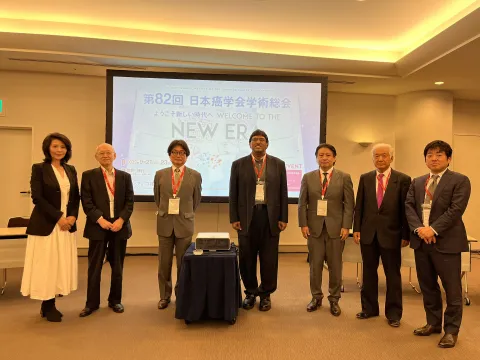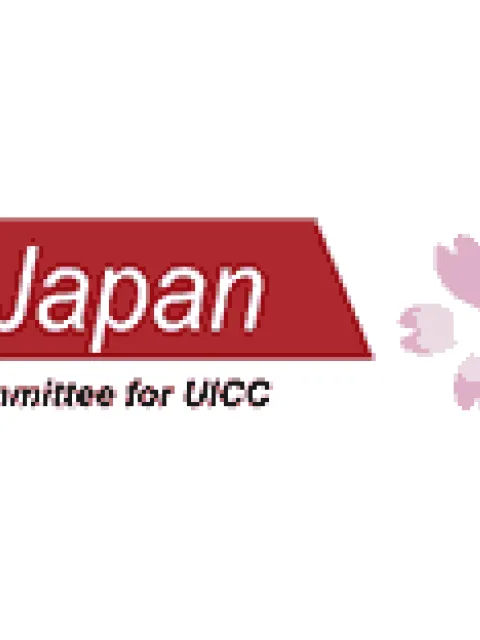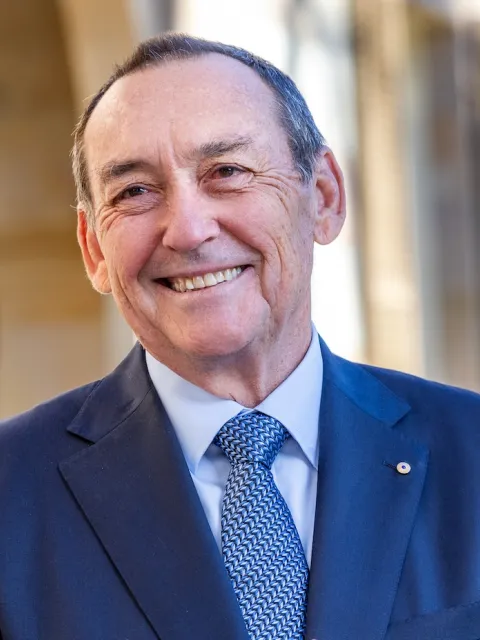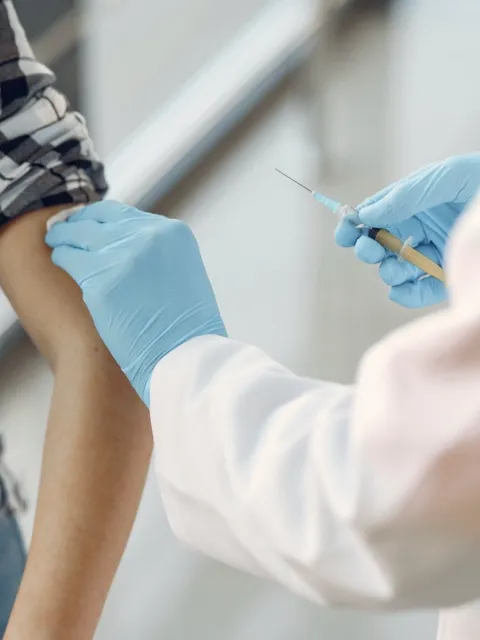UICC-ARO Convenes International Session at 82nd Annual Meeting of the Japanese Cancer Association

The Japan National Committee for UICC (UICC-Japan) and UICC-Asia Regional Office (UICC-ARO) convened a special international session at the 82nd Annual Meeting of the Japanese Cancer Association. The hybrid meeting was co-chaired by Dr Tetsuo Noda (UICC-Japan), Prof. Jeff Dunn AO (UICC) and Dr Kazuo Tajima (Mie University).
In the current turbulent international climate, the urgency of collective solutions to global challenges cannot be overemphasised. The global cancer community, while adapting to new realities in a post-COVID world, is also tasked with addressing issues and harnessing newfound opportunities, utilising the latest technologies and innovations. These and other challenges are planned to be discussed in October 2023 at the World Cancer Leaders' Summit 2023 in Long Beach, CA, in the US.
This UICC International Session therefore came at an opportune time to bring experts together to discuss issues that impact the Asian region, and enumerate concrete ideas for bridging the cancer care gap. Some speakers focused on the transformative role that new technologies and AI could play, with others highlighting the need to galvanise political will to increase cancer’s visibility on the international public health agenda.
Opening the session, Dr Noda reminded participants that 'Close the Care Gap' is the current three-year slogan for World Cancer Day, and noted that all speakers were requested to focus their thoughts and comments on ways in which the care gap in cancer control can be bridged, with a view to sending a message to the upcoming World Cancer Leaders’ Summit.
Prof. Jeff Dunn (UICC) noted that, with cases of cancer and cancer mortality increasing in low and middle-income countries, it is more important than ever before to address inequities in cancer care. UICC is the largest and oldest organisation dedicated to reducing the burden of cancer around the world. and Through its various platforms and activities, UICC connects all stakeholders, including the newly established Access to Oncology Medicines (ATOM) Coalition. UICC also recognises the need to take a central role in sharing knowledge and fostering a learning culture across the community and organisations, including through various key events, such as World Cancer Day and the World Cancer Leaders’ Summit, given the need to send out compelling messages to support the global call to action on cancer.
Dr Yasuhiro Nishijima (Ministry of Health, Labour and Welfare) provided an overview of the history of cancer control in Japan, including the Basic Plan to Promote Cancer Control Programmes and the Cancer Control Act, noting that screening is a pivotal strategy in early detection in Japan, and national screening programmes are in operation for various cancers.
In order to boost screening rates, the implementation of public awareness campaigns is also of great importance. Dr Saunthari Somasundaram (National Cancer Society Malaysia (NCSM)) set out the challenges presented by cancer inequities in Malaysia, including the lack of coverage in rural areas, and that the public health system in Malaysia is ageing in terms of equipment and infrastructure, which is also impacting service provision.
Also, financial toxicity arising as the result of a cancer diagnosis is another significant issue that impacts equity of care. NCSM is working to raise awareness and provide education about cancer; one recent example being the Bringing Education and Understanding To You (BEAUTY) Programme, being implemented jointly with Asia Cancer Forum with support from Astellas Pharma Inc., with community beauty salons being used as hubs for raising awareness.
Dr Masahiko Oguchi (Cancer Institute Hospital, Japan) presented various AI-led innovations that aim to close the cancer care gap using ICT, including the AI-equipped Integrated Cancer Medical Database, where oncology-related information is automatically registered, providing a large, structured database that can be used as training data for AI. AI can assist various decision-making processes and also help in precision medicine provision. It has great potential to support oncologists, particularly in less densely populated areas.
Dr Murallitharan M. Munisamy (NCSM) spoke about the need to build resilient social systems in order to improve cancer screening rates in Malaysia. He noted that a paradigm shift is required in terms of provision of cancer screening and detection services, with a focus on working outside the clinical landscape to drive community participation. He also referred to the BEAUTY Programme in Malaysia as an example of a non-clinical awareness-raising initiative that is community focused and has the potential to help raise screening rates.
Mr Teppei Sakano (CEO, Allm Inc., Director of Asia Cancer Forum) introduced the activities of Allm Inc., a medical ICT provider, which is providing telemedicine apps and systems in 35 countries globally. Although the focus has to date been on acute care, activities have now expanded to oncology, and Allm has joined with the National Cancer Center Japan to provide an online doctor-to-doctor second opinion service, which will be further developed going forward. Allm is also supporting Ukraine through doctor-to-doctor telemedicine and other services/devices to provide advanced medical care and emergency care, and recently accompanied a Japanese government delegation to Kyiv and made a presentation about medical support.
Plans are also moving forward to invite Ukrainian doctors to Japan for advanced training at the Cancer Institute Hospital and other cancer centres in Japan. Dr Norie Kawahara (UICC-ARO, Asia Cancer Forum) noted that UICC is supporting cancer patients in Ukraine through a Solidarity Fund, which was established in 2022 in response to UICC members’ calls to support organisations in Ukraine that have been affected by the war. UICC will host a session entitled 'Cancer Control in a Crisis Situation' at the upcoming World Cancer Leaders’ Summit.
In closing, Dr Tajima thanked all participants for the comprehensive discussions that had covered a wide range of topics to be taken forward to next month’s Summit, and noting that the most important role of the UICC is to continue to act as an effective bridge to close the gaps among the cancer control activities both internationally and locally around the world.
Last update
Monday 02 October 2023Share this page


